LMIC's 2021-2022
Annual
Report
Table of Contents
Reflections from
LMIC’s leadership
Message from the
Chair of The Board of Directors

Bindi Sawchuk
Assistant Deputy Minister, Ministry of Post Secondary Education and Future Skills, Government of British Columbia
Message from the
Acting Executive Director

Tony Bonen
Acting Executive Director,
Labour Market Information Council
Message from the
Chair of the National Stakeholder Advisory Panel

David Ticoll
Distinguished Fellow, Munk School of Global Affairs and Public Policy, University of Toronto
In the wake of COVID-19, Canadian labour markets are undergoing profound change. Aging populations and record-low unemployment have created unprecedented skills and labour shortages that are affecting all provinces and territories.
LMIC has been at the forefront of these emerging issues, ensuring that Canadians and policy-makers understand the challenges posed by tight labour markets—as well as the benefits they could bring.
LMIC’s work this year—the first in its five-year strategic plan—has established a strong foundation for the organization’s growth and impact. The new LMIC Data Hub provides access to the labour market information Canadians need to succeed in the changing world of work.
Global engagements with the International Labour Organization, European Commission and Organisation for Economic Co-operation and Development (OECD) have strengthened awareness of LMIC and provided good opportunities to share best practices. Collaboration with partners at the Forum of Labour Market Ministers, within the research community, and with career development organizations has positioned LMIC to play a pivotal role in Canada’s dynamic and ever-changing labour markets.
What a year of change. Unprecedented labour and skills shortages across Canada meant LMIC pivoted from a focus on COVID-19 recovery to supporting Canadians, employers, and policy makers with insights to help them make sense of the changing economic landscape. Through it all, we’ve stayed true to our mission by delivering insights, tools and resources to guide, enhance and champion labour market information across the pan-Canadian landscape. In addition, our stakeholder surveys, consultations and collaborative research laid a foundation for future innovation to be launched from a solid evidence base.
Partnerships are at the heart of all our work. Since its founding just five years ago, LMIC has prioritized collaborations wherever there is shared purpose to support more efficient and inclusive labour markets. We credit the successes we enjoyed through this tumultuous year, as in years past, to the value and strength of our partnerships.
The relationships we have forged and groundwork laid in our projects, research and analysis have set the stage for LMIC to transform into a more mature and robust organization supporting the evolving labour market needs of Canadians across the country. I am pleased to share, in this annual report, the outputs from LMIC’s 2021-22 fiscal year, and I hope you will join me in celebrating our team’s success.
In the midst of a rapidly changing labour market, LMIC’s National Stakeholder Advisory Panel (NSAP) has focused on three priority areas to help people in Canada make informed decisions as they prepare for the future of work.
Our first priority is data quality. NSAP is pleased to have supported the development, testing and beta release of the LMIC Data Hub: a repository that draws on a wide variety of sources, including high-frequency LMI derived from job postings. As it increasingly combines survey-based LMI with AI-enabled big data labour market analytics, the Data Hub will become a transformative contributor to an innovative LMI ecosystem.
Data accessibility is the panel’s second priority area. LMIC aims to develop strong partnerships so stakeholders across Canada can readily access easy-to-use, timely, reliable LMI to inform their decisions.
Finally, the third NSAP priority aims to improve LMI literacy among students, job-seekers, career advisors, employers, Indigenous communities and underrepresented populations. People in Canada need to know what questions LMI can help them answer, where to find it and how to use it.
As Canada’s labour market shifts, there is great opportunity for innovation in the LMI ecosystem. NSAP looks forward to continuing to support LMIC to further its vision of ensuring all people in Canada have the information and insights to succeed in a changing, dynamic world of work.
Message from the
Chair of The Board of Directors

Bindi Sawchuk
Assistant Deputy Minister, Ministry of Advanced Education, Skills and Training, Government of British Columbia
In the wake of COVID-19, Canadian labour markets are undergoing profound change. Aging populations and record-low unemployment have created unprecedented skills and labour shortages that are affecting all provinces and territories.
LMIC has been at the forefront of these emerging issues, ensuring that Canadians and policy-makers understand the challenges posed by tight labour markets—as well as the benefits they could bring.
LMIC’s work this year—the first in its five-year strategic plan—has established a strong foundation for the organization’s growth and impact. The new LMIC Data Hub provides access to the labour market information Canadians need to succeed in the changing world of work.
Global engagements with the International Labour Organization, European Commission and Organisation for Economic Co-operation and Development (OECD) have strengthened awareness of LMIC and provided good opportunities to share best practices. Collaboration with partners at the Forum of Labour Market Ministers, within the research community, and with career development organizations has positioned LMIC to play a pivotal role in Canada’s dynamic and ever-changing labour markets.
Message from the
Acting Executive Director

Tony Bonen
Acting Executive Director,
Labour Market Information Council
What a year of change. Unprecedented labour and skills shortages across Canada meant LMIC pivoted from a focus on COVID-19 recovery to supporting Canadians, employers, and policy makers with insights to help them make sense of the changing economic landscape. Through it all, we’ve stayed true to our mission by delivering insights, tools and resources to guide, enhance and champion labour market information across the pan-Canadian landscape. In addition, our stakeholder surveys, consultations and collaborative research laid a foundation for future innovation to be launched from a solid evidence base.
Partnerships are at the heart of all our work. Since its founding just five years ago, LMIC has prioritized collaborations wherever there is shared purpose to support more efficient and inclusive labour markets. We credit the successes we enjoyed through this tumultuous year, as in years past, to the value and strength of our partnerships.
The relationships we have forged and groundwork laid in our projects, research and analysis have set the stage for LMIC to transform into a more mature and robust organization supporting the evolving labour market needs of Canadians across the country. I am pleased to share, in this annual report, the outputs from LMIC’s 2021-22 fiscal year, and I hope you will join me in celebrating our team’s success.
Message from the
Chair of the National Stakeholder Advisory Panel

David Ticoll
Distinguished Fellow, Munk School of Global Affairs and Public Policy, University of Toronto
In the midst of a rapidly changing labour market, LMIC’s National Stakeholder Advisory Panel (NSAP) has focused on three priority areas to help people in Canada make informed decisions as they prepare for the future of work.
Our first priority is data quality. NSAP is pleased to have supported the development, testing and beta release of the LMIC Data Hub: a repository that draws on a wide variety of sources, including high-frequency LMI derived from job postings. As it increasingly combines survey-based LMI with AI-enabled big data labour market analytics, the Data Hub will become a transformative contributor to an innovative LMI ecosystem.
Data accessibility is the panel’s second priority area. LMIC aims to develop strong partnerships so stakeholders across Canada can readily access easy-to-use, timely, reliable LMI to inform their decisions.
Finally, the third NSAP priority aims to improve LMI literacy among students, job-seekers, career advisors, employers, Indigenous communities and underrepresented populations. People in Canada need to know what questions LMI can help them answer, where to find it and how to use it.
As Canada’s labour market shifts, there is great opportunity for innovation in the LMI ecosystem. NSAP looks forward to continuing to support LMIC to further its vision of ensuring all people in Canada have the information and insights to succeed in a changing, dynamic world of work.
What we accomplished this year
Canada experienced yet another year of dramatic labour market shifts. At the start of the year, our collective focus was on getting people back to work in a post-pandemic world, but concern soon shifted to the emerging challenge of labour shortages.
To help people who lost their jobs, we focused on supporting the career services sector—the professionals at the frontlines helping Canadians to find job training programs and explore their career options. We worked closely with our partners at the Future Skills Centre and OECD, among others, to dig into how people use those career services and what kinds of labour market information are most relevant when using them. Our work shed new light on how adults in Canada engage with career services and identified key challenges holding Canadians back from using career services.
As public health initiatives brought the pandemic under control, businesses across the country recovered quickly—so quickly, in fact, that we suddenly faced a new challenge: not enough workers for the available jobs. LMIC helped build a greater understanding of how to measure labour shortages and what long-run trends are contributing to them. These were critical contributions to pan-Canadian conversations. LMIC appeared as a witness at committee hearings at the Senate of Canada, presented on expert panels at the Canadian Economics Association, the European Commission and International Labour Organization, and received more than 400 media mentions.
This year, we also launched the beta version of the LMIC Data Hub. This database makes it easy for our partners across Canada to integrate high-quality information (such as the potential wages and skill requirements of jobs) into the apps, platforms and services that they offer to people across Canada. By automating data collection and cleaning processes, the Data Hub frees up our partners’ resources so they can focus on providing targeted and contextualized career advice knowing that they are drawing on the best labour market information available. As we look ahead toward the full release of the Data Hub, we will begin to incorporate additional services, such as LMIC’s subject matter expertise, to maximize the impact of this new pan-Canadian resource.
Our Annual Report contains a full summary of our outputs for the 2021–2022 fiscal year, organized according to LMIC’s six strategic and operational objectives:
Objective
Foster an innovative LMI ecosystem
Canadian Job Trends Dashboard
Online job postings contain a wealth of information, but accessing these data is costly and difficult.
This year, we launched the Canadian Job Trends Dashboard to allow anyone to explore labour market information based on trends found in online job postings across Canada.
Insights and data at detailed occupation levels
Stakeholders across Canada have been calling for more local, granular LMI data.
In partnership with Vicinity Jobs and Magnet, we linked job postings and skills data to occupations at a more granular level than the standard 4-digit occupations and integrated these new classifications into the Canadian Job Trends Dashboard.
We also worked closely with Employment and Social Development Canada to validate the forthcoming profiles and job descriptor ratings in its Skills and Competencies Taxonomy at the same sub-occupation level.
New approaches to measuring and tracking skills
Knowing what skills are in demand is important information for policy-makers, job-seekers and employers.
This year, we explored emerging techniques to identifying skills for specific jobs, analyzing approaches to forecasting skills, and developing methodologies to estimate the demand and supply of bilingual workers.
Objective
Collaborate with stakeholders to address LMI priorities
The use of career services among adults in Canada
Labour market information is most impactful when it is personalized for individuals. Career development professionals play a key role in contextualizing and interpreting LMI.
To better understand the needs of career development professionals and support their work, we collaborated with the Future Skills Centre and OECD to understand how adults in Canada use career services and how LMI can support them.
Labour market information gaps
One of LMIC’s strategic goals is to address LMI gaps in Canada. To better understand LMI needs and help determine data priorities, LMIC and Statistics Canada developed a questionnaire to gather input on LMI gaps from people throughout Canada who have an interest in LMI.
LMI for career-related decisions
To make LMI relevant, we need to know what kind of information people in Canada need at all points of their lives and career journeys.
Through literature reviews and consultations with stakeholders, career practitioners and other LMI intermediaries, we conducted research on how people in Canada make career-related decisions.
Objective
Encourage the adoption of best practices in the generation, analysis and dissemination of LMI
A long-term vision for Canada’s LMI ecosystem
This year, we held extensive consultations with stakeholders across Canada to understand current LMI challenges and opportunities.
These consultations led to the identification of eight persistent and emerging challenges to LMI in Canada and six recommendations for growth and innovation.
Insights into Canadian labour market trends
To encourage best practices in LMI analysis and dissemination, LMIC strives to produce high-quality, objective analyses of emerging labour market trends. These insights help bring clarity on where policy-makers need to focus their efforts in the months and years to come.
Objective
Promote LMI consistency and coherency
WorkWords: a labour market encyclopedia
WorkWords is an online labour market encyclopedia that provides definitions of key labour market terms, data, uses and concepts. Each entry contains definitions of terms, links to help users find data sources, and insights into how best to interpret the data to make more informed decisions. This year, we updated and launched the following entries:
Emerging LMI concepts
To solve the big challenges ahead, we need a shared understanding of LMI terms and trends. To that end, we provided insight into emerging terminology, curated the latest findings on the future of work in our Future of Work Annotated Bibliography, and shared the latest findings related to COVID-19 and the labour market in our Now of Work Annotated Bibliography.
Objective
Enable access to LMI across the pan-Canadian ecosystem
The LMIC Data Hub
There is a lot of labour market data in Canada, but accessing, contextualizing and using data from multiple sources continues to be a challenge.
The Data Hub helps solve this challenge. As a central data repository with automated delivery of data, it provides accurate, up-to-date Canadian labour market information into any system or platform that needs it.
This first-of-its-kind database powers innovative tools so that Canadians can easily explore labour market information to make more informed career decisions.
In partnership with the Future Skills Centre, this year we built and launched the LMIC Data Hub prototype and developed the Canadian Online Job Trends Dashboard as a proof of concept to showcase how partners can build tools that use data from the Data Hub.
New earnings data
This year, we updated our Post-Secondary Graduate Earnings Dashboard with new evidence on the early career earnings of Canadian post-secondary education graduates by credential and field of study, and released a report on key findings in the new data.
Objective
Support the use of LMI
LMI for career service providers
Career service providers are on the frontlines of employment, supporting people in Canada with the LMI they need to succeed in a rapidly changing world of work.
This year, we provided learning opportunities for career service providers on the state of career guidance in Canada, women’s employment and the COVID-19 recovery, and the use of online job postings data to understand employment trends. We produced the following webinars:
LMI for policy makers
Our work with international policy-makers and with federal, provincial and territorial orders of government helps ensure that programs and policies are driven by accurate, up-to-date and granular LMI.
Highlights of our consultations with a wide variety of policy-makers throughout the year include:
LMI for partners and stakeholders
LMIC participated in 26 presentations, panels, conferences and speaking engagements in 2021–2022 to promote the availability, use and understanding of LMI. A full list is included in the Public Engagement section of this report. Highlights include:
Collaboration
and partnerships
LMIC’s partnership ecosystem is the foundation of our work and helps us reach all people in Canada. In 2021–2022, we continued to collaborate with our partners to harness their experience, expertise, creativity and resources to add value to the Canadian LMI ecosystem.
We worked closely with the Forum of Labour Market Ministers on the Forum’s mandate to address shared labour market issues across Canada. Through our partnerships with the Forum, governments and other stakeholders, we worked to ensure all people in Canada have access to the labour market information they need to make informed decisions.
We partnered with members and stakeholders from each of the ministries of labour across all federal, provincial and territorial orders of government. These partners provided us with key feedback and expertise so we could address LMI challenges and priorities across Canada.
We also worked closely with organizations driving innovation and inclusion in Canada’s LMIC ecosystem, including the Future Skills Centre, World Education Services, Magnet, Vicinity Jobs, Statistics Canada, the Canadian Career Development Foundation, CERIC, the Social Research and Demonstration Corporation, and the Canadian Council for Youth Prosperity.










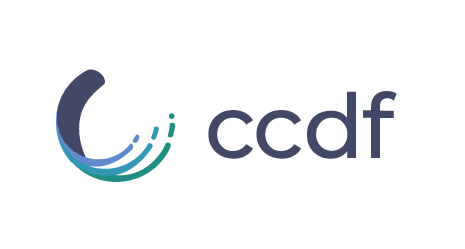


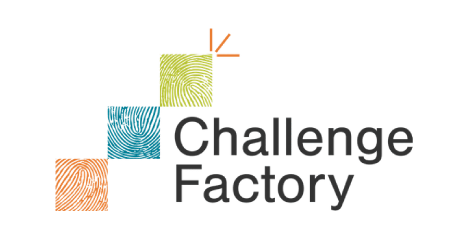




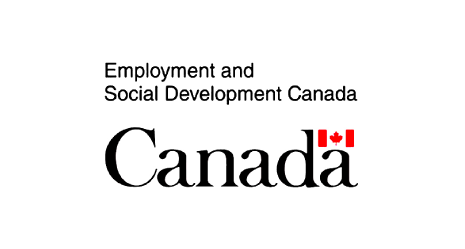














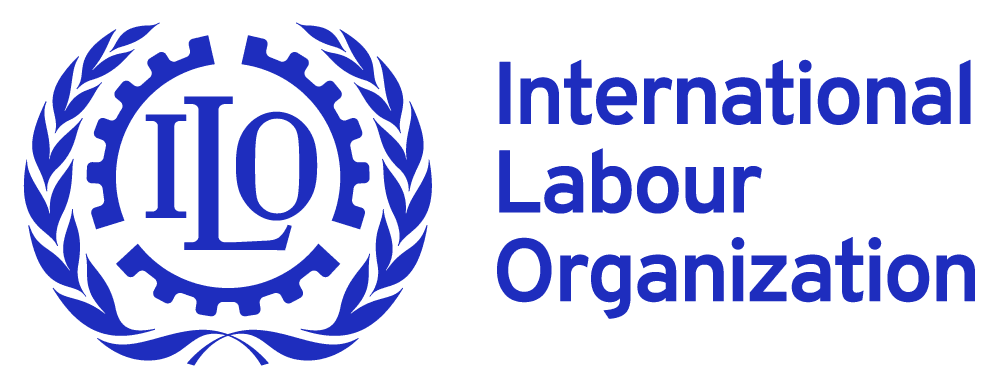









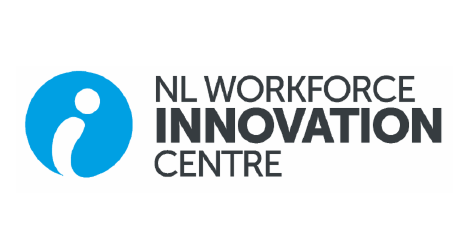

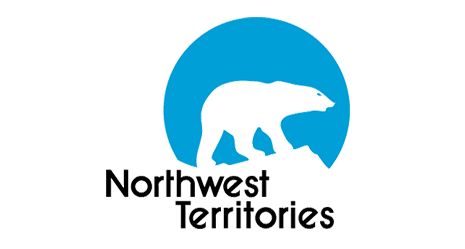

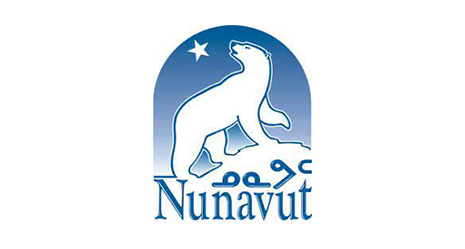
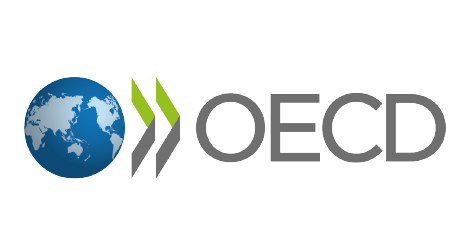



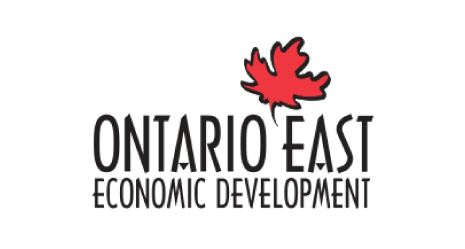






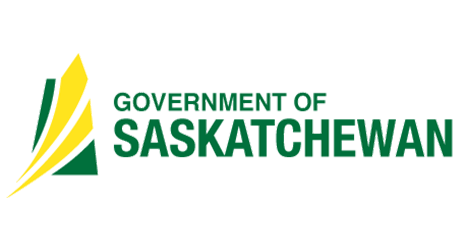










Governance
A key belief behind our partnerships is that common challenges can be overcome with shared, collaborative solutions. To this end, our work is guided by the expertise of our Board of Directors, panels and committees.
LMIC's Board of Directors, in consultation with stakeholders, is responsible for determining LMIC’s direction and priorities. The Board has representation from each province and territory as well as Employment and Social Development Canada and Statistics Canada.
The National Stakeholder Advisory Panel provides strategic recommendations on organizational priorities and projects. The panel is composed of non-government stakeholders who have substantial insight into and expertise in labour market information.
Career Development Stakeholder Committee
The LMIC-Future Skills Centre Career Development Stakeholder Committee helps shape new career guidance tools for Canadians that are powered by data from the LMIC Data Hub. The committee continues to guide and support our advancement toward the national initiative, Equipping Career Services with LMI Tools and Data.
LMIC’s Labour Market Information Experts Panel is a key resource for feedback, advice and guidance on our research practices and methods. The panel is made up of experts from a variety of fields and sectors across the country.
Media
LMIC appeared in the media 445 times
between April 2021 and March 2022.
Below are a selection of articles featuring the organization.
City News
October 8, 2021
Global News
October 18, 2021
Toronto Star
November 5, 2021
CBC Radio
November 7, 2021
Globe and Mail
November 18, 2021
CBC
November 20, 2021
Canadian SME Small Business Magazine
December 16, 2021
CBC
December 28, 2021
University Affairs
February 7, 2022
Globe and Mail
March 13, 2022
Globe and Mail
March 15, 2022
Toronto Star
March 17, 2022
Globe and Mail
March 17, 2022
Public
Engagement
LMIC participated in 26 public engagements between April 2021 and March 2022.
Canadian Economics Association
June 4, 2021
Canadian Economics Association
June 4, 2021
Newfoundland and Labrador Workforce Innovation Centre
June 9, 2021
Canadian Association for Business Economics
September 15, 2021
Canadian Institutional Research and Planning Association
October 21, 2021
Graduate and Postdoctoral Development Network
October 19, 2021
Manitoba Association for Career Development
November 5, 2021
International Labour Organization
November 16, 2021
Canadian Association of Career Educators and Employers
November 18, 2021
Fleming College
November 24, 2021
Ministers’ Council on the Canadian Francophonie
January 27, 2022
Information and Communications Technology Council
February 1, 2022
International Labour Organization
February 3, 2022
Senate Committee on Banking, Trade and Commerce
March 30, 2022
Looking Ahead
In the years to come, LMIC’s work will be driven by its strategic goals to guide LMI systems, enhance LMI practices and champion LMI access.
To guide LMI systems, we will build on our expertise to provide a solid foundation of knowledge from that policy-makers and key influences across Canada can use to determine the best solutions to emerging and anticipated labour market challenges. To enhance LMI practices, we will collaborate on innovative projects involving labour market data with a view to sharing the knowledge gained so other organizations can apply the lessons learned in their own work.
The LMIC Data Hub will be the cornerstone of our efforts to champion LMI access. We recognize that providing access to data isn’t enough: we need to take an active and collaborative approach to make sure the labour market information we make available supports the apps, tools and services that help Canadians make more informed career decisions.
In all our initiatives, we are excited to work with a growing number of stakeholders across the pan-Canadian LMI ecosystem so that all people in Canada have access to the information and insights they need to succeed in a changing, dynamic world of work.
Financials
With Board of Director approval, Baker Tilly audited the financial statements of the Labour Market Information Council as of March 31, 2022. In Baker Tilly's opinion, the financial statements present fairly, in all material respects, the financial position of the Labour Market Information Council as of March 31, 2022, and the results of its operations and its cash flows for the year then ended in accordance with Canadian Accounting Standards for Not-for-profit Organizations. To promote transparency and accountability, the full Independent Auditor's Report can be read at the link below.
Cover illustration by Dorothy Leung for LMIC. All rights reserved.
